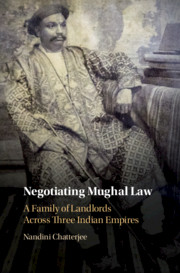(Source: CUP)
Oxford University Press is
publishing a micro-history analysis to explore law, empire and society in Mughal
India.
ABOUT THE BOOK
Based on a completely
reconstructed archive of Persian, Hindi and Marathi documents, Nandini
Chatterjee provides a unique micro-history of a family of landlords in Malwa,
central India, who flourished in the region from at least the sixteenth until
the twentieth century. By exploring their daily interactions with imperial
elites as well as villagers and marauders, Chatterjee offers a new history from
below of the Mughal Empire, far from the glittering courts of the emperors and
nobles, but still dramatic and filled with colourful personalities. From this
perspective, we see war, violence, betrayal, enterprise, romance and
disappointment, but we also see a quest for law, justice, rights and
righteousness. A rare story of Islamic law in a predominantly non-Muslim
society, this is also an exploration of the peripheral regions of the Maratha
empire and a neglected princely state under British colonial rule. This title
is also available as Open Access.
ABOUT THE AUTHOR
Nandini Chatterjee, University
of Exeter
Nandini Chatterjee is Associate Professor of History at the University of Exeter. She has published widely on the British and Mughal empires, including her book The Making of Indian Secularism: Empire, Law and Christianity, 1830–1950 (2011).
TABLE OF CONTENTS
Introduction
1. Malwa: land of many empires
2. Zamindars: lords of the
marches
3. Contractors: engaging the
state
4. Transactions: recording deals
5. Disputes: judges and courts
6. Invaders: marathas and the
British
7. Identity: professionals or
warlords?
Conclusion. Fragments to
archives: a methodological manifesto
Appendix. A catalogue of the P
Das archive
Glossary.
More info here


No comments:
Post a Comment
Note: Only a member of this blog may post a comment.